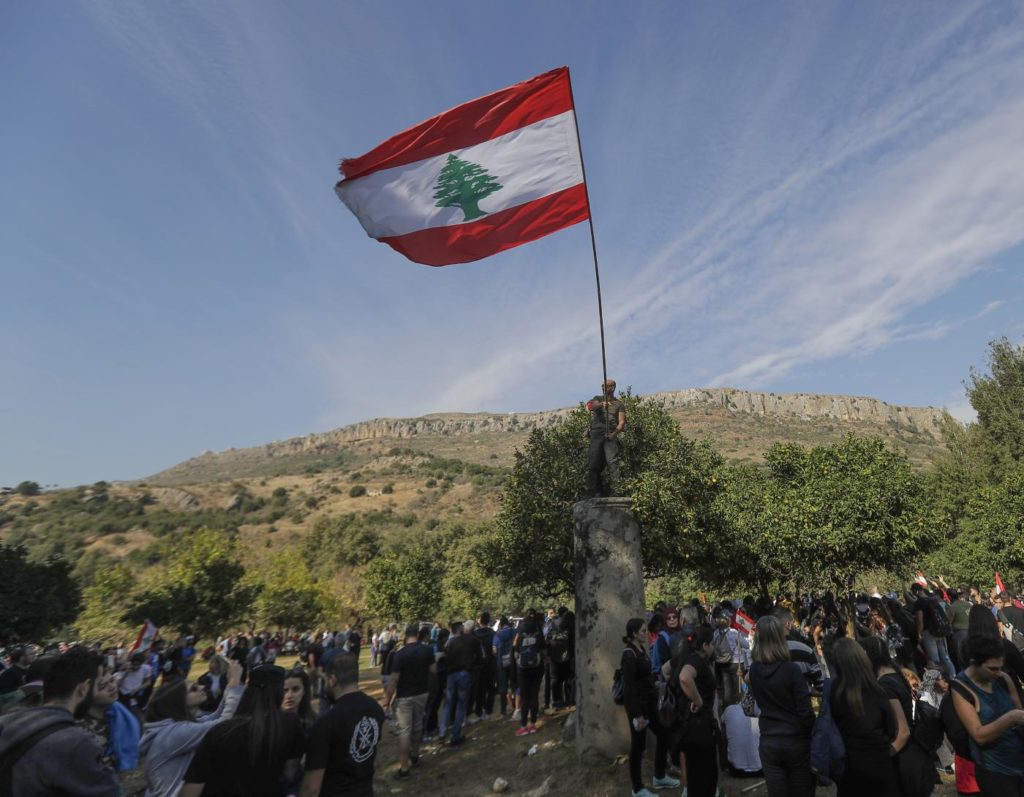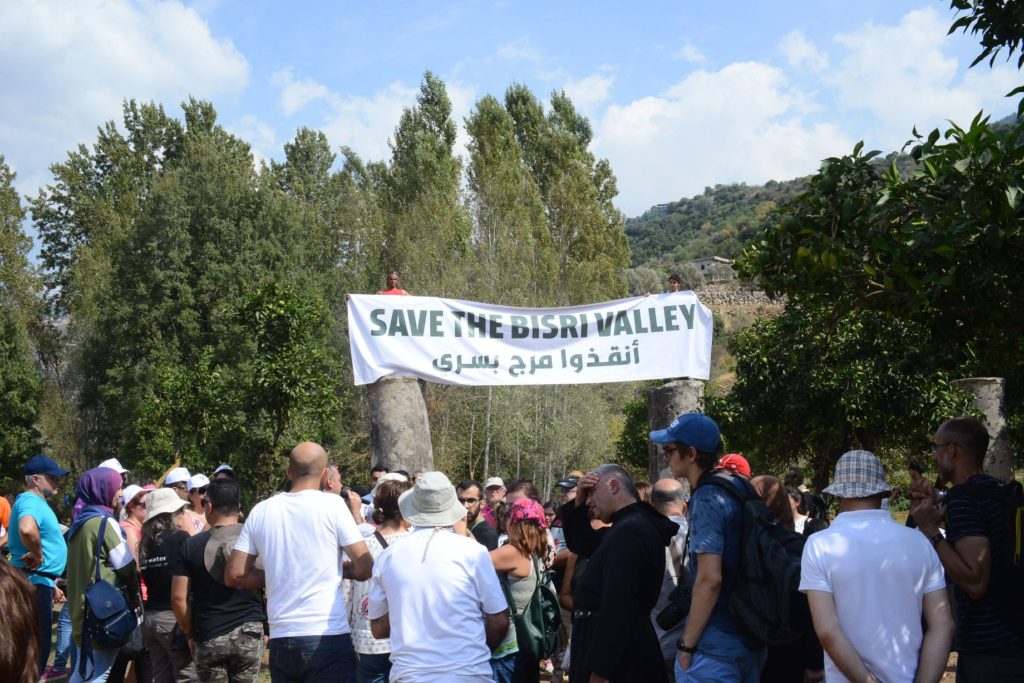A controversial dam project in a lush valley southwest of Beirut has suffered a major setback, after its main sponsor the World Bank called on the Lebanese government to hold an “open public dialogue” to address concerns raised by campaigners against the plan.

The Bisri Dam Project, also known as the Lebanon Water Supply Augmentation Project, was first approved by the World Bank back in September 2014. The organisation had allocated funds for a loan amounting to $617 million, calling it one of their largest projects in Lebanon.
By 2024, the World Bank promised in 2019, the dam would have helped the country secure “clean and reliable water supply to over 1.6 million people” living across the Great Beirut and Mount Lebanon region.
While the plan had received support from Lebanon’s ruling political parties, it was met with uproar from environmentalists and local residents who feared irreversible damages to the region’s rich ecosystem.
For years, campaigners have called for the project to be scrapped completely and for the site to be turned into a nature reserve. Now their voices seem to have been heard.
On Thursday, the World Bank released a statement that put doubts on the project’s future.
“Given strong stakeholder concerns about the [Bisri Dam] Project, the World Bank has requested the Government of Lebanon to launch an open and transparent public dialogue to address the concerns raised by citizens and civil society groups,” said Saroj Kumar Jha, World Bank Mashreq regional director.
He also announced the re-channeling of $45.5m from the project funding to help with Lebanon’s efforts to combat the coronavirus outbreak which – compounded by the ongoing economic crisis – has trapped the country in an “unprecedented crisis”.
“The World Bank is open to government of Lebanon’s suggestions as to how the existing portfolio, including undisbursed amounts from the Bisri project, could be used more effectively to respond to the emerging needs of the Lebanese people,” Jha added.
Small victories
Prior to the latest announcement, the Lebanese government had begun work on the dam after receiving the first portion of the World Bank’s loans.

The early stages of land clearance have already begun, although activists camping out in the valley during the country’s popular uprising that began last October have held back construction efforts.
Lebanon’s collapsing economy and the Covid-19 outbreak have also helped stall the project.
Now, the World Bank’s latest statement has given a morale boost to campaigners, who for years have targeted the project saying that the government should ask for a reallocation of the loans for better use, such as the coronavirus response effort.
“I’m sure the World Bank would welcome the government’s request [to reallocate the funds] from existing projects such as the Bisri Dam which are not happening,” coordinator of the Save the Bisri Valley campaign, Roland Nassour, told Middle East Eye.
Just earlier this month, the Lebanese government had requested to reallocate some of the World Bank funding, moving $40m from the country’s Health Resilience Project to its Covid-19 response effort. Ironically, this happened almost at the same time Lebanon’s cabinet officially ratified the Bisri Dam project.
But politicians have warned of dangerous consequences if the Bisri Dam project were to be cancelled altogether.
Energy Minister Raymond Ghajar said scrapping the project would place further immediate financial burdens on the cash-strapped Lebanese state, given that half of the loan from the World Bank was already paid, making the Lebanese government liable.
President Michel Aoun took to Twitter to criticise the opponents of the “vital project”, saying “those who reject it will face a great responsibility” for their action.
Support of local authorities
The ongoing protests from campaigners have succeeded in persuading a number of municipalities in the area to withdraw their support for the dam.
“We originally weren’t opposed, because it was a national project. But the environmentalists have shed light on a lot of issues that many people were not aware of,” Mazraat el-Chouf mayor, Yehya Abou Karoom, told MEE.
Mazraat el-Chouf is one of four municipalities in Chouf district with land in the valley that have withdrawn their support for the project.
Abou Karoom said that out of the five-million-square metre land appropriated for the dam, 25 percent belongs to his municipality.
Together with lands belonging to Ammatour, Beter, and Bsaba municipalities, that’s a total of “60-65 percent” of the project site that no longer supports it, he said.
Nassour said the mayors’ decision was crucial and ultimately symbolic.
“This makes things clear that the local community and administration oppose the project,” Nassour told MEE, adding that he has heard from “reliable sources” close to the World Bank that the project truly is on its last legs.
“If the project is aborted, the loans can be used elsewhere to serve the interests of the Lebanese people,” he said. “Although some would prefer that we had refused [the World Bank loans] in the first place.”
When approached by MEE, the World Bank did not comment on the withdrawal of the four municipalities from the Birsi Dam project.
The popular uprising
When the World Bank approved the financing of the Bisri Dam back in 2014, it allocated funds for a loan of around $617m. However over the years, economists and even some Lebanese MPs have warned that the project costs could amount to at least $1.2bn in its early stages.
Environmentalists and other activists, like Nassour – currently a graduate student at the American University of Beirut – have since been campaigning against the plan, citing its economic and social damage to farmers, its impact on Lebanese biodiversity, and safety concerns considering the dam would be built on a fault line.
Ever since, campaigners and the World Bank have been in a tug of war of narratives surrounding the project.
The Save Bisri Valley campaign was launched in 2017 to disseminate online petitions, hold protests, and organise walking tours across the valley to showcase to citizens the region’s unique biodiversity, historical sites like the Mar Moussa Church, and the remains of a Roman temple.
Middle East Eye


Leave a Reply
You must be logged in to post a comment.